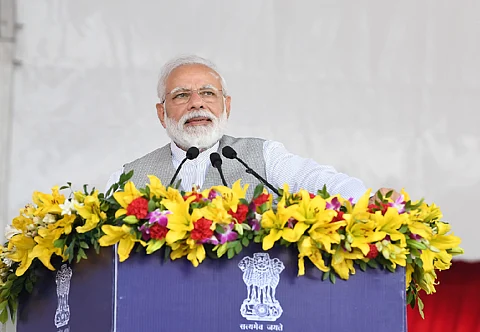

Indian General Elections 2019 are over resulting into by and large expected victory for the incumbent government. What caught everyone by surprise though was the landslide win for the Narendra Modi led Bhartiya Janata Party (BJP). A government with clear mandate from the public for next 5 years should mean for the renewables industry that there won't be any big shake-ups but will bring in more clarity and direction to the market.
Ever since solar enthusiast Modi took over the reins of the country in 2014 as Prime Minister, his government increased the solar power capacity target of India from 20 GW solar set by the previous government to be achieved by 2022 to 100 GW in the same time frame. Needless to say, this made solar a subject of discussion in India and catapulted India into the big league of nations leading the global solar power industry. Today India is among the top 3 global solar markets along with China and the United States.
Solar pumps and grid connected solar power plants with 25.75 GW targeted capacity for agricultural use under KUSUM scheme, 12 GW CPSU solar scheme to support domestic solar manufacturing industry, and efforts to lay down transmission lines for renewable energy-ready national grid are morale boosting initiatives that should go strength to strength under the government.
However, from past one year or so Indian solar industry has been facing challenging times what with the lack of clarity surrounding goods and services tax (GST), safeguard duty imposition, anti-dumping tariff investigations to encourage domestic solar manufacturing industry growth that forced investors and developers both to turn cautious. Rooftop solar with its massive 40 GW installed capacity target to be achieved by 2022 is another Achilles Heel for the administration as growth in this segment refuses to pick up.
The government even tried to push manufacturing tenders linked with power plant generating capacity that did not go down that well with the stakeholders.
All of this resulted into Indian tender and auction activity too slow to handle. Compared to 9.36 GW of solar power capacity installation during FY 2017-18, only 6.53 GW came online in FY 2018-19 (see India Installed Only 6.5 GW Solar In FY 2018-19).
Having said that, with the elections over and political stability confirmed in India, the industry should hope for regulatory support going forward but at the same time investors would want free play in the market instead of protectionist measures been furthered. Post 2019 elections, Reuters reported that foreign companies in India would like to see Modi 'soften a protectionist stance adopted in the past year'.
And then, the government would also want to achieve its solar power target of 100 GW by 2022 to add a feather to its cap, and to show its allegiance to the commitments pledged under the Paris Climate Agreement.
"The NDA administration has taken renewables and especially solar to the next level considering almost 90% of solar installations in the country have happened over the last five years. That said, there are plenty of challenges ahead to address like UDAY and DISCOM finances, access to finance, land, and transmission issues to start with," said Mercom Capital Group CEO Raj Prabhu. "If these are successfully addressed, the next five years could be a boom time for the Indian renewable industry."
